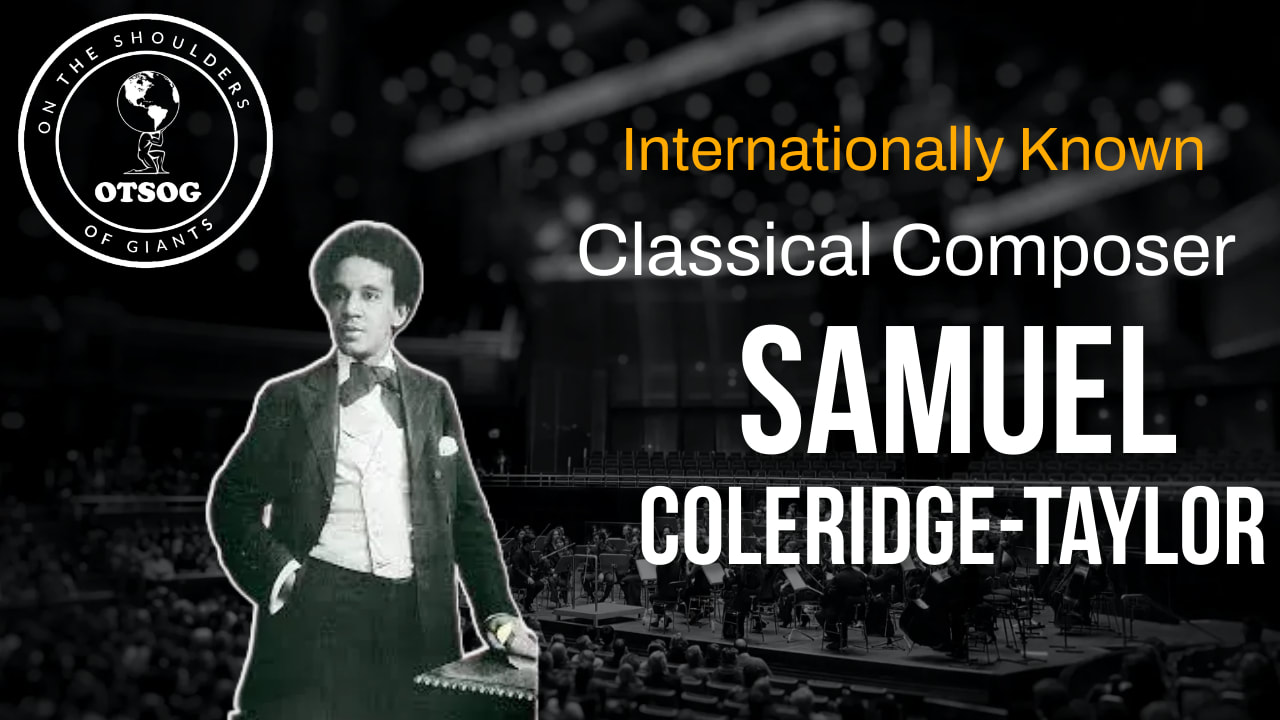|
In 1875, a baby boy was born who would become one of the world’s foremost classical composers and political activists. That baby was Samuel Coleridge-Taylor, born to Daniel Peter Hughes Taylor and Alice Hare Martin, in Holborn, London. Daniel Peter Hughes Taylor was born in Sierra Leone and is a member of the Creole ethnic group that’s a mixture of people from Sierra Leone and African Americans. Daniel Taylor worked as a doctor and was also the Imperial Coroner in the Gambia. There is debate about Daniel’s presence in Samuel and Alice’s lives. One source says Daniel left London returning to the Gambia unaware of Alice being pregnant. Another source says Daniel was aware of Alice being pregnant with Samuel but returned to the Gambia to work as the Imperial Coroner while keeping in touch with his son. Alice was an English woman living in Croydon during the time of her and Daniel’s relationship. After Alice’s split with Daniel, she gave birth to Samuel. She also lived with her father in Croydon until meeting and marrying a railroad worker named George Evans. Alice named Samuel after her favorite poet Samuel Taylor Coleridge, founder of the romantic poetic movement in England. Music was very influential for Alice and her family, many members of her family were musicians and Alice’s father taught Samuel how to play the violin when Samuel was a young boy. Not only did Samuel show interest in the violin, but his skill level improved quickly, prompting his grandfather to pay for his violin lessons. At the age of 15, Samuel was accepted to the Royal College of Music in South Kensington, London. Samuel entered the Royal College of Music as a violinist, but after studying under the professor and composer Charles Villers Stanford, his focus changed from the violin to composing music. His change to composing and hard work paid off because after his graduation he became a professional musician, composer, orchestra conductor, and professor at the Crystal Palace Company's School of Art in East London, England. Samuel Coleridge-Taylor the composer was becoming very popular in London and abroad. His works earned him an invitation to present his compositions at the Three Choirs Festival in London, England, a prominent music festival held by the three cathedrals of Hereford, Gloucester, and Worcester. Samuel debuted his composition “Ballade in A Minor”, which was considered a masterpiece and earned Samuel the title of “genius”. By this time Samuel had created 30 compositions with “Ballade in A Minor” being his most popular at the time, he then composed Hiawatha’s Wedding Feast, a piece that allowed Samuel to tour the United States three times, and the piece was conducted by his former professor Charles Villiers Stanford at a premiere in 1898. Samuel’s first tour of the United States was in 1904. Then-president Theodore Roosevelt welcomed Samuel because of his musical success, influence, and his growing work in racial and social politics. Roosevelt receiving Samuel in such a manner was uncommon for the times, especially in the United States with race relations not being favorable for black people. Touring the United States helped Samuel learn more about himself and his ancestry, and he learned more about traditional African music and how he could incorporate African music into his compositions. Samuel eventually met and collaborated with the great African American writer Paul Lawernce Dunbar, and even recreated some of Dunbar’s poems into musical compositions, also collaborating to perform Dunbar’s poems at a rectal in London. Samuel did not earn a lot of money as a composer, at times to make ends meet, he sold the rights to some of his most successful compositions for a fraction of what the pieces were eventually worth. However, he kept the rights to a number of his pieces and earned the royalties from those pieces. As I stated earlier, Samuel became interested in his father’s lineage, he did learn that his father was a descendent of African Americans who resettled, in Nova Scotia, London, the Caribbean, and Sierra Leone. Samuel married a woman named Jessie Walmisley in 1899, a woman he met while attending the Royal College of Music. Initially, Jessie’s parents did not approve of their marriage because Samuel was born of a mixed-race but eventually gave their blessing to the couple. Samuel and Jessie produced a son named Hiawatha and a daughter named Gwendolyn, both Hiawatha and Gwendolyn became musicians. Samuel died in 1912 at the age of 37 due to pneumonia. In total, he composed 82 pieces of music, and 11 compositions were recorded. Samuel was a world-famous composer who influenced the musical world, but directly influenced black musicians around the world. His composition Hiawatha’s Wedding Feast was his most famous piece, but many of his pieces were admired and imitated by the music world. His name was lost to the pages of history outside of the music world, but his name and compositions are still influential within the world of music. Samuel proved that classical music is not just a white man’s music or limited to European musical influences. Also, true talent and will cannot, and will not be denied. Mr. Samuel Coleridge-Taylor, we proudly stand on your shoulders. J.A. Ward Click here to support the OTSOG book series. References: https://www.classical-music.com/composers/samuel-coleridge-taylor/ https://www.classicfm.com/discover-music/who-was-samuel-coleridge-taylor-what-famous-for/ https://en.wikipedia.org/wiki/Samuel_Coleridge-Taylor
0 Comments
Leave a Reply. |
Details
Categories
All
Click Here to join our mailing list
|
Contact Us: |
Connect With Us |
Site powered by PIT Web Design


 RSS Feed
RSS Feed



